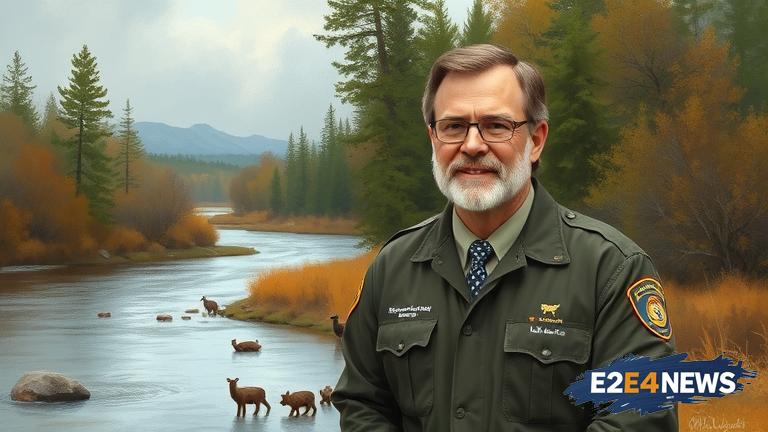The National Cattlemen’s Beef Association (NCBA) and the Public Lands Council (PLC) have released a statement congratulating Brian Nesvick on his confirmation as the new Director of the US Fish and Wildlife Service. This confirmation is a significant development for the agricultural and wildlife conservation communities. The US Fish and Wildlife Service plays a crucial role in managing and conserving the nation’s wildlife and natural resources. As the new Director, Brian Nesvick will be responsible for overseeing the agency’s efforts to protect and preserve endangered species, manage wildlife habitats, and enforce wildlife laws. The NCBA and PLC have expressed their support for Nesvick’s confirmation, citing his experience and expertise in wildlife management and conservation. Nesvick has a strong background in natural resource management, having previously served as the Director of the Wyoming Game and Fish Department. He has also worked with various stakeholders, including ranchers, farmers, and conservation groups, to develop and implement effective wildlife management strategies. The NCBA and PLC believe that Nesvick’s confirmation will help to promote a more balanced approach to wildlife conservation, one that takes into account the needs of both wildlife and agricultural communities. The US Fish and Wildlife Service has been at the center of several high-profile controversies in recent years, including debates over the management of grizzly bears, wolves, and sage grouse. Nesvick’s confirmation is seen as an opportunity to reset the agency’s relationships with stakeholders and to develop more effective and collaborative approaches to wildlife conservation. The NCBA and PLC have pledged to work with Nesvick and the US Fish and Wildlife Service to promote greater understanding and cooperation between the agricultural and wildlife conservation communities. This collaboration will be critical in addressing the complex challenges facing wildlife conservation, including habitat loss, climate change, and human-wildlife conflict. The confirmation of Brian Nesvick as the new Director of the US Fish and Wildlife Service is a positive development for the nation’s wildlife and natural resources. It is expected that Nesvick will bring a new perspective and approach to the agency, one that prioritizes collaboration, flexibility, and a commitment to finding solutions that work for all stakeholders. The NCBA and PLC look forward to working with Nesvick and the US Fish and Wildlife Service to promote a more balanced and effective approach to wildlife conservation. The US Fish and Wildlife Service has a critical role to play in protecting and preserving the nation’s wildlife and natural resources, and the confirmation of Brian Nesvick as the new Director is an important step forward. The agency’s efforts will have a significant impact on the nation’s ecosystems, biodiversity, and natural heritage. The NCBA and PLC are committed to working with Nesvick and the US Fish and Wildlife Service to ensure that the agency’s policies and programs are effective, efficient, and responsive to the needs of all stakeholders. The confirmation of Brian Nesvick is a significant development for the nation’s wildlife and natural resources, and it is expected that he will play a critical role in shaping the future of wildlife conservation in the United States. The US Fish and Wildlife Service is a key agency in the federal government, and its work has a significant impact on the nation’s ecosystems, biodiversity, and natural heritage. The NCBA and PLC believe that Nesvick’s confirmation will help to promote a more collaborative and effective approach to wildlife conservation, one that takes into account the needs of both wildlife and agricultural communities. The nation’s wildlife and natural resources are a precious heritage, and it is essential that they are managed and conserved in a responsible and sustainable way. The confirmation of Brian Nesvick as the new Director of the US Fish and Wildlife Service is an important step forward in promoting a more balanced and effective approach to wildlife conservation.





